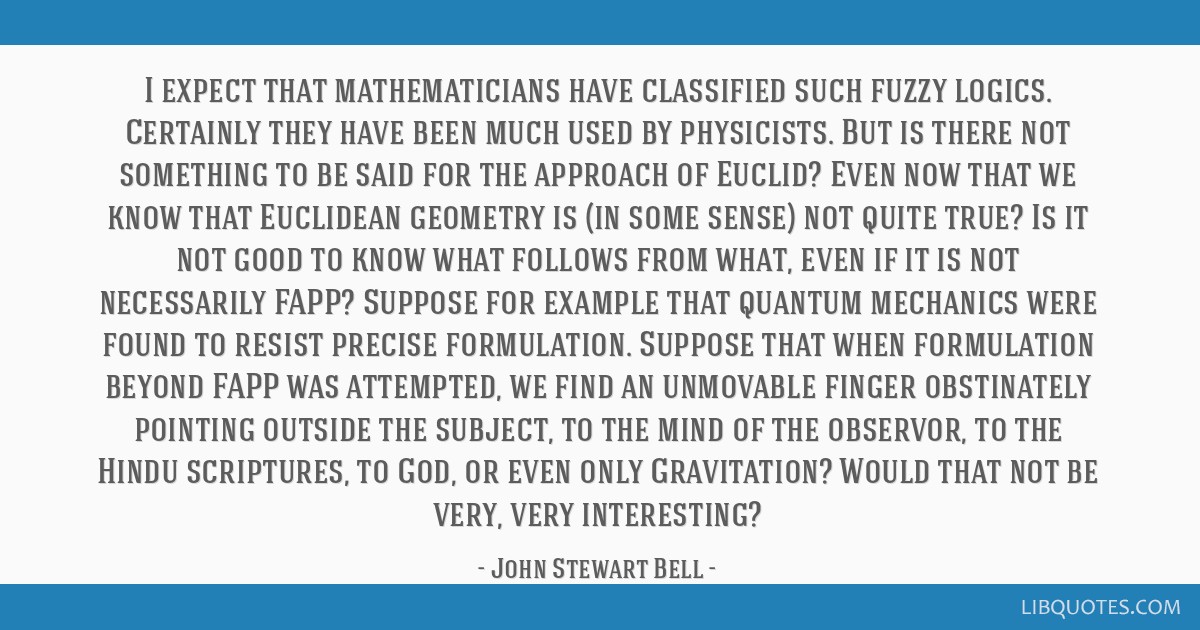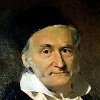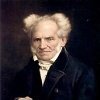I expect that mathematicians have classified such fuzzy logics. Certainly they have been much used by physicists. But is there not something to be said for the approach of Euclid? Even now that we know that Euclidean geometry is (in some sense) not quite true? Is it not good to know what follows from what, even if it is not necessarily FAPP? Suppose for example that quantum mechanics were found to resist precise formulation. Suppose that when formulation beyond FAPP was attempted, we find an unmovable finger obstinately pointing outside the subject, to the mind of the observor, to the Hindu scriptures, to God, or even only Gravitation? Would that not be very, very interesting?
Against 'mesurement' (1990)























